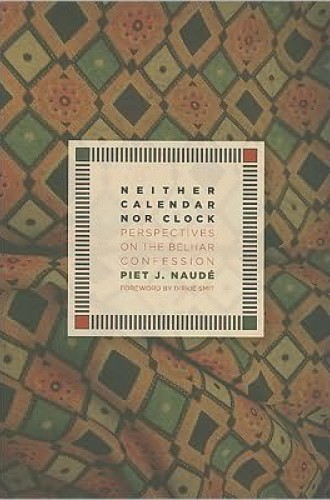Neither Calendar nor Clock, by Piet J. Naudé
South Africa became a full democracy with the April 1994 vote to end apartheid. In the long struggle that brought about that transformative decision, parts of the church played a major role, even as other parts vigorously colluded with the apartheid regime.
Few actions in that struggle were more important or more dramatically compelling than the Belhar Confession, a historic statement that was first adopted in draft form in 1982 and was fully adopted as a normative confession by the Dutch Reformed Mission Church ("the so-called colored church") in 1986.
Like every serious confession, this one is located specifically. It was named for a "so-called colored suburb in Cape Town," a community formed as a result of the Group Act of 1950, which dispossessed "nonwhites" and relocated them in segregated townships. With the name Belhar, the confession clearly was intended to "speak from the margins and represented both political and ecclesial schism." The confession grew from and fully articulates the profound church struggle in South Africa, which was a microcosm of the political struggle.





